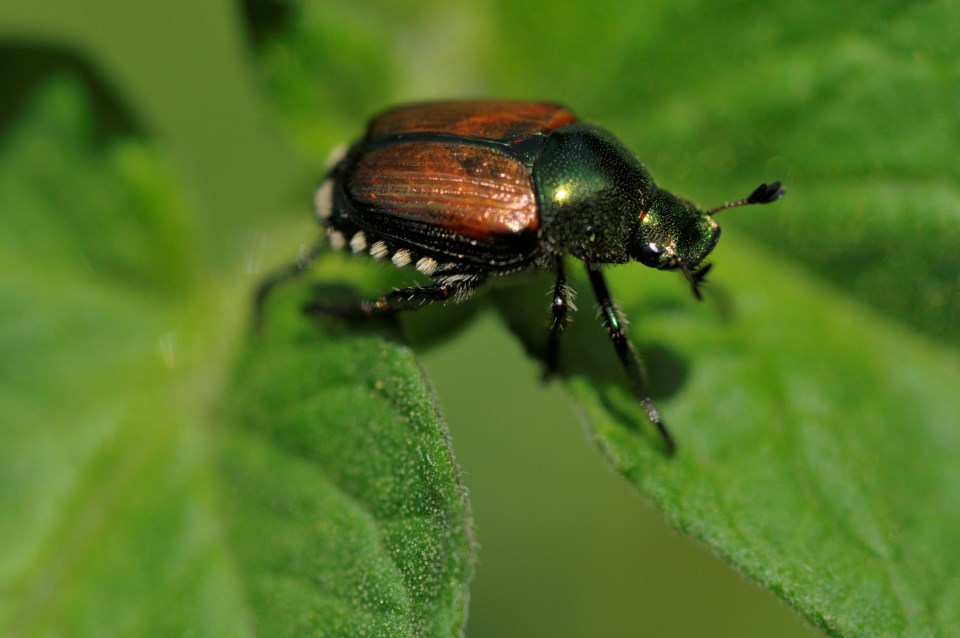Port Coquitlam is beginning its spring offensive against the invasive Japanese beetle (Popillia japonica).
The pests, which damage gardens, lawns and plants, have been identified in six areas of the city, up from two last year.
This week city crews will begin applying the larvicide Acelepryn directly to the soil at city-owned parks, medians and boulevards in the north and south sides of Port Coquitlam.
The treatment targets root-eating grubs and is not harmful to people, pets, mammals, birds, bees, butterflies or other animals.
According to the city, the larvicide Acelepryn is approved for use in Canada by the Pest Management Agency of Health Canada and is permitted under the city’s Pesticide Use Control Bylaw No. 3767 4(c).
"The city has been notified that the Japanese beetles have been detected in traps within the community and as such, a provincial Notice of Requirement to treat public lands for Japanese beetle has been issued," the city states in a press release.
Port Coquitlam has created a web page about the Japanese beetle.
A map of treatment areas is available on the city's website; it shows the larvicide will be applied to:
- An area between Oxford Street and Wellington Street and south of Patricia Avenue to Coquitlam Avenue, including McLean Park
- At the Coast Meridian Connector to Lougheed Highway
- Along Lougheed Highway between Ottawa Street and Nicola Avenue
- Between Shaughnessy Street and Kingsway Avenue and from Wilson Avenue to Hawthorne Avenue
- Neighbourhoods along the Pitt River Road from Western Drive to Broadway Street
- A small swath of Colony Farm Regional Park west of Shaughnessy Street
To give the larvicide a chance to take effect, residents are asked to avoid these areas on treatment days. There will be city staff and signage present at each site to advise people of program details and best practices including keeping their pets off the grass.
The Japanese beetle is an invasive, federally regulated pest that was first introduced to eastern North America from Japan in 1916. It was detected in the False Creek area of the City of Vancouver in 2017 and since then, the Canadian Food Inspection Agency (CFIA) has been undertaking an advanced trapping and eradication program across Metro Vancouver, including the City of Port Coquitlam.
The Japanese beetle is known to be a destructive pest, which feeds on the leaves of fruit trees, plants in ornamental gardens and turf in lawns, parks, sports fields and golf courses.
In addition to spraying, the city is asking the public to take steps to stop the spread of the beetle, including taking the following actions:
- Keep soil and green waste on site (compost) or use your green bin to dispose of soil and plant waste
- Check your clothes, vehicles and equipment for hitchhikers, especially when leaving parks, fields, golf courses or other greenspaces
- Report sightings of this distinctive looking insect to the Canadian Food Inspection Agency and find out more here



